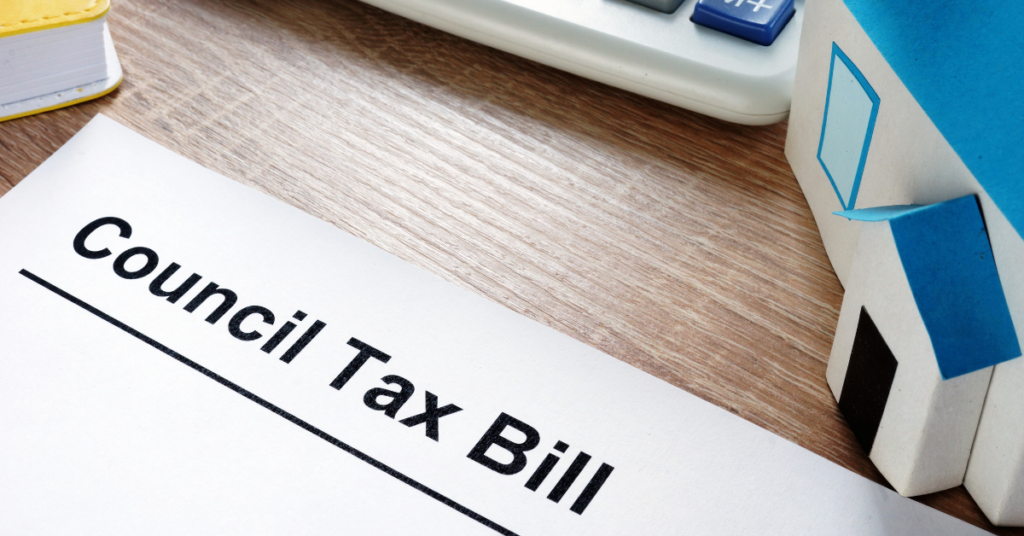Table of Contents
- Why Council Tax Is Treated Differently
- Step 1: Contact Your Council Straight Away
- Step 2: Check If You Could Pay Less
- Step 3: Prioritise Council Tax In Your Budget
- What Happens If You Ignore Council Tax Arrears?
- Step 4: Explore Debt Solutions If Arrears Are Unmanageable
- Step 5: Get Help Before Enforcement Begins
If you’ve fallen behind on council tax payments, you’re not alone. Thousands of households in the UK struggle with council tax arrears every year, and the pressure can quickly mount when reminder letters or court notices start arriving.
Because council tax is a priority debt, it carries more serious consequences than things like credit cards or overdrafts. The good news is that there are clear steps you can take to stop things escalating and support available if you need help.
Why Council Tax Is Treated Differently
Council tax helps fund essential local services, and local authorities have stronger powers to collect it than other creditors. That means arrears can’t be ignored or pushed to the bottom of the pile.
If you miss payments, your council can:
- Cancel your instalments and demand the full year’s bill in one go
- Apply to the magistrates’ court for a liability order (adding legal costs to your debt)
- Pass the case to bailiffs (enforcement agents)
- Take money directly from your wages or benefits
In extreme cases, people with long-term arrears who refuse to pay can face prison, although this is rare, and usually only after every other recovery option has been exhausted.
Step 1: Contact Your Council Straight Away
If you’ve missed a payment, don’t wait for things to spiral. Contact your council’s billing team as soon as you can. Many local authorities will agree to spread arrears over the remaining months of the year, or create a repayment plan that takes your income into account.
It’s always better to approach them early, rather than waiting for reminders, court summons, or bailiff action.
Step 2: Check If You Could Pay Less
Before agreeing to any repayment plan, make sure you’re not paying more council tax than you need to. You may qualify for:
- Council Tax Reduction if you’re on a low income or benefits
- Single Person Discount if you live alone
- Exemptions or Discounts for students, apprentices, and some disabled residents
These reductions can make a big difference to the amount you owe. Your council’s website will list the discounts available.
Step 3: Prioritise Council Tax In Your Budget
Because of the legal powers councils have, it’s vital to treat council tax as a priority debt. Even if credit card or loan providers are chasing you, keeping up with council tax should come first.
If you’re juggling multiple debts, it can help to write out a simple income and expenses budget. Once essentials like rent, utilities, food, and council tax are covered, you’ll have a clearer picture of what’s left for other creditors.
What Happens If You Ignore Council Tax Arrears?
The recovery process moves quickly if arrears aren’t addressed. First, you’ll usually receive a reminder notice giving you seven days to catch up. If you don’t, a final notice may arrive, and you could lose the right to pay in installments. At that point, the full year’s bill may become due at once.
If the arrears are still unpaid, the council can apply for a liability order through the magistrates’ court. This adds legal costs to your debt and gives the council stronger powers to collect it. With a liability order in place, they may:
- Instruct bailiffs to recover the money (adding further fees to your balance)
- Deduct payments directly from your wages (an attachment of earnings)
- Take money from benefits like Universal Credit, Jobseeker’s Allowance, or Pension Credit
At every stage, charges can increase making the debt harder to clear the longer it’s left unresolved.
Step 4: Explore Debt Solutions If Arrears Are Unmanageable
If council tax arrears are part of a wider debt problem, there may be formal solutions to help you regain control:
- Debt Management Plan (DMP): Lets you pay non-priority debts at a lower rate, freeing up money for council tax.
- Individual Voluntary Arrangement (IVA): A legally binding agreement to repay what you can afford, often writing off a portion of your debts.
- Debt Relief Order (DRO): An option if you owe under a certain amount and have little spare income or assets.
- Bankruptcy: A last resort, but it does clear council tax arrears along with other debts.
An adviser can explain which route best fits your situation.
Step 5: Get Help Before Enforcement Begins
Dealing with council tax arrears can feel intimidating, especially if you’re already struggling with other bills. But taking action early, even just having a first conversation about your options, can stop things escalating to bailiffs or court.
At PennyPlan, we speak to people every day who feel trapped by council tax debt. We’ll take the time to understand your finances, explain the solutions available, and help you find the best way forward.
Speak To PennyPlan Today
The earlier you tackle council tax arrears, the easier they are to resolve. Whether you need help negotiating a payment plan or exploring a long-term debt solution, we’re here to support you.
Start getting your finances back on track and talk to our team today.



